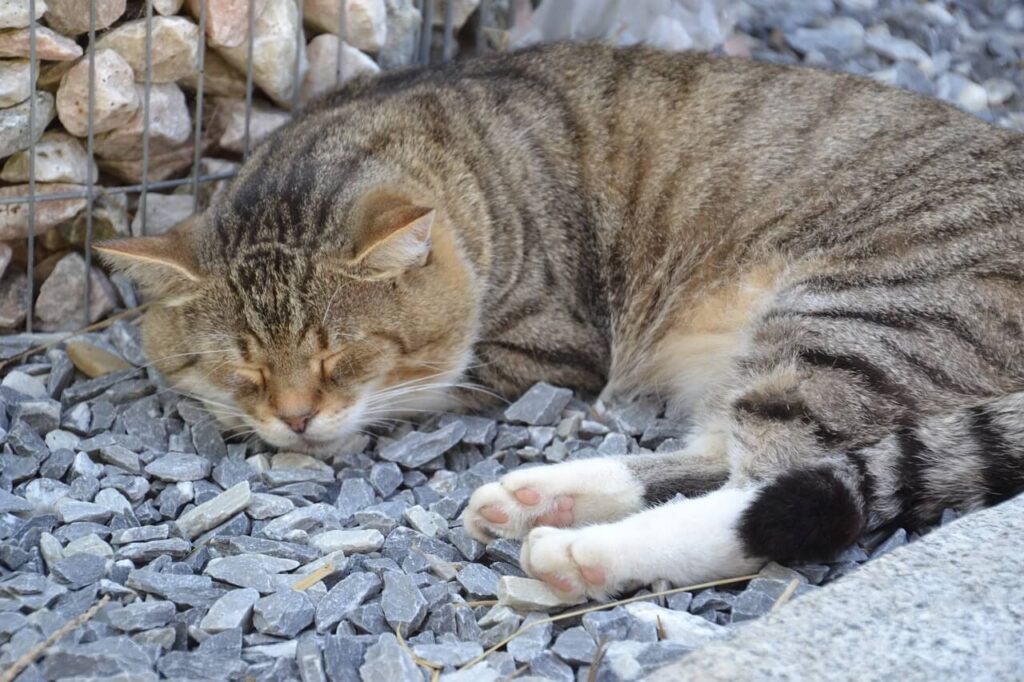How Cats Age: A Comprehensive Guide to Understanding 6 Stages of Feline Aging
As cat owners, we cherish our feline companions and want them to lead happy and healthy lives. Understanding how cats age is crucial to providing them with the proper care and attention they need as they age. In this article, we will explore the different stages of feline aging and discuss signs, challenges, and strategies to help your cat age gracefully. So, let’s delve into the fascinating world of cat aging!

The Stages of Feline Aging
Cats go through various stages of life, each with its unique characteristics and requirements. Here are the primary six stages of feline aging indicating how cats age:
1. Kittenhood (0-6 months): During this stage, kittens experience rapid growth, exploring their surroundings, and developing their senses and coordination skills.
2. Junior (7 months – 2 years): Young adult cats continue to grow and mature. They are full of energy, playfulness, and curiosity, but they also begin to show more independence.
3. Prime (3-6 years): Cats in their prime are typically at their healthiest and most active. They have reached adult size and maintain their physical abilities.
4. Mature (7-10 years): As cats enter their mature stage, they start to show signs of aging, such as decreased activity, weight gain, and changes in their fur and teeth, highlighting the fascinating process of how cats age.
5. Senior (11-14 years): Senior cats require special attention and care. They may develop age-related health issues, such as arthritis or dental problems, and their energy levels may decrease.
6. Geriatric (15+ years): At this stage, cats are considered geriatric. They may experience significant physical and cognitive changes that require additional support and follow-up from their owners.
Understanding How Cats Age
Although every cat ages differently, there are some common signs that indicate how cats age, and you could realize that your feline friend is entering a new stage of life. Look for the following indicators:
a) Changes in behavior: Increased sleep, decreased activity, decreased grooming, changes in appetite, or altered social interactions.
b) Physical changes: Graying of the fur, decreased muscle mass, weight gain or loss, changes in sight, or dental problems.
c) Health issues: Common age-related conditions include arthritis, kidney disease, hyperthyroidism, diabetes, or cognitive dysfunction, further highlighting the unique journey of how cats age.
Here are some tips to calculate your cat’s age.
Strategies to Support Aging Cats
To help your cat age gracefully and maintain a good quality of life, consider the following strategies:
a) Regular veterinary check-ups: Frequent visits to the vet are essential for early detection and management of age-related health issues.
b) Balanced diet: Provide a nutritious and age-appropriate diet to support your cat’s changing nutritional needs. Consult your vet for dietary recommendations.
c) Exercise and mental stimulation: Encourage gentle exercise and engage your cat in interactive play sessions to keep their muscles active and their minds sharp.
d) Comfortable living environment: Provide comfortable and easily accessible resting spots, low-sided litter boxes, and other accommodations that accommodate your cat’s changing physical abilities.
e) Dental care: Regular dental check-ups and teeth cleaning can prevent dental problems that commonly affect older cats.
f) Loving attention: Spend quality time with your aging cat, offering affection, grooming, and a calm, stress-free environment to ensure their emotional well-being.
Conclusion
In conclusion, understanding how cats age is crucial for providing appropriate care and support as they enter different stages of life. By recognizing the signs of aging and implementing strategies to promote their well-being, you can help your feline companion live a comfortable and fulfilling life throughout their senior years. Remember that each cat is unique, so be attentive to their individual needs and consult your veterinarian for personalized guidance. Cherish the precious moments with your aging cat and embrace the joy they bring to your life, no matter what stage they are in.
Are you interested to find out if can cats cry? Click the link.
2 Comments